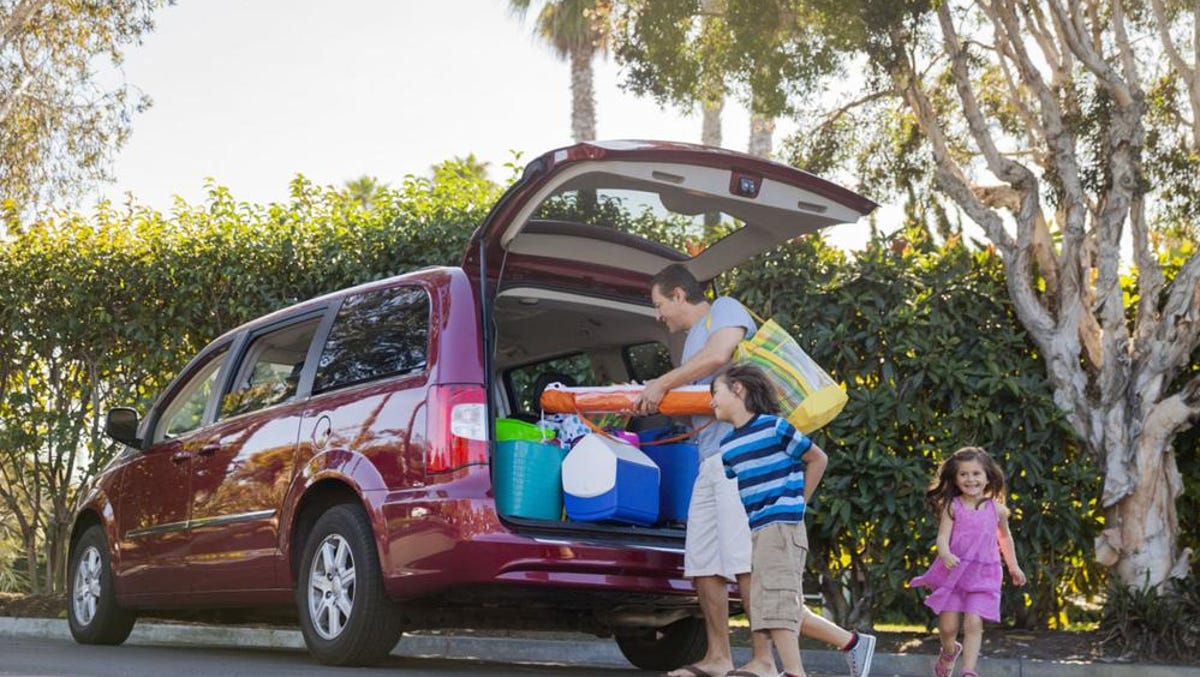
Road trip essentials before heading on your journey
Planning a road trip soon? This video covers essential tips such as vehicle maintenance, route planning, packing an emergency kit, entertainment for long drives, and sharing your itinerary for safety purposes.
If you’re traveling for Memorial Day weekend, be prepared to run into some crowds. The next holiday weekend – taking place May 25 to 27 – is slated to see a record-breaking number of travelers, according to AAA.
A projected 43.8 million Americans are expected to pack their bags for trips over 50 miles or more over the holiday weekend – a 4% increase from last year and close to 2005’s previous record of 44 million.
“We haven’t seen Memorial Day weekend travel numbers like these in almost 20 years,” said Paula Twidale, Senior Vice President of AAA Travel, in a press release. “We’re projecting an additional one million travelers this holiday weekend compared to 2019, which not only means we’re exceeding pre-pandemic levels but also signals a very busy summer travel season ahead.”
Both roads and airports will be extremely busy, with a historic number of roadtrippers since AAA began tracking data in 2000. That’s 38.4 million drivers, up 4% from last year.
A predicted 3.51 million airline passengers are expected to hit the skies over the holiday weekend, a 4.8% increase from 2023. This will make for the most crowded Memorial Day weekend at airports since 2005, AAA said.
Here’s everything you need to know about traffic if you’re hoping for a Memorial Day weekend getaway.
Summer is just around the corner. Here’s everything you need to know for your summertime trip.
What are the most popular destinations for Memorial Day weekend travel?
Most popular domestic destinations:
- Orlando
- Seattle,
- New York
- Las Vegas,
- Anaheim/Los Angeles
Most popular international destinations:
- Rome
- Vancouver, Canada
- London
- Paris
- Dublin
What are the best times to drive for Memorial Day weekend?
To avoid the worst traffic, drivers leaving for their long weekend trip on Thursday, May 23, and Friday, May 24, should hit the road before 11 a.m. or after 7 p.m. Thursday and 8 p.m. Friday.
Travelers driving on Saturday, May 25, who leave before 1 p.m. and after 6 p.m., will be able to avoid the worst traffic jams. On Sunday, drivers should head out before 1 p.m. to avoid the worst congestion.
Travelers returning home on Monday, May 27, should embark after 7 p.m. if they want to dodge peak traffic.
What are the worst times to drive by car for Memorial Day weekend?
Travelers should expect the worst traffic on Thursday between noon and 6 p.m.
Friday between noon and 7 p.m. since they’ll encounter commuter congestion as well.
Over the weekend, peak traffic is anticipated to be between 2 p.m. and 5 p.m. on Saturday and between 3 p.m. and 7 p.m. on Sunday.
On Memorial Day, drivers heading back home can expect peak traffic between 3 p.m. and 7 p.m., aka peak rush hour time.
Peak congestion times in major US cities
Travelers who are going through major metropolitan areas should unfortunately expect travel times to be up to 90% longer than usual, according to Bob Pishue, transportation analyst at INRIX. “Travelers should stay up to date on traffic apps, 511 services, and local news stations to avoid sitting in traffic longer than necessary,” Pishue said in a statement.
Atlanta
- Worst route: Atlanta to Savannah via I-16 E
- Worst day: Saturday, May 25
- Worst time: 4:45 p.m.
- Estimated travel time: 5 hours, 31 minutes
- 54% increased travel time
Boston
- Worst route: Manchester to Boston via I-93 S
- Worst day: Sunday, May 26
- Worst time: 8:45 a.m.
- Estimated travel time: 1 hour, 48 minutes
- 50% increased travel time
Chicago
- Worst route: Milwaukee to Chicago via I-94 E
- Worst day: Sunday, May 26
- Worst time: 4:30 p.m.
- Estimated travel time: 2 hours, 25 minutes
- 27% increased travel time
Denver
- Worst route: Fort Collins to Denver via I-25
- Worst day: Sunday, May 26
- Worst time: 4:15 p.m.
- Estimated travel time: 1 hour, 24 minutes
- 56% increased travel time
Los Angeles
- Worst route: LA to Bakersfield via I-5 N
- Worst day: Thursday, May 23
- Worst time: 6:15 p.m.
- Estimated travel time: 2 hours, 45 minutes
- 84% increased travel time
New York
- Worst route: New York to Albany via I-87N
- Worst day: Thursday, May 23
- Worst time: 11:45 a.m.
- Estimated travel time: 2 hours, 37 minutes
- 84% increased travel time
Philadelphia
- Worst route: Philadelphia to Baltimore/DC
- Worst day: Friday, May 24
- Worst time: 7:30 a.m.
- Estimated travel time: 2 hours, 37 minutes
- 64% increased travel time
San Francisco
- Worst route: San Francisco to Napa via I-80 E
- Worst day: Friday, May 24
- Worst time: 11 a.m.
- Estimated travel time: 1 hour, 34 minutes
- 56% increased travel time
Washington, D.C.
- Worst route: Washington, DC to Baltimore via Balt/Wash Pkwy N
- Worst day: Friday, May 24
- Worst time: 2:15 p.m.
- Estimated travel time: 1 hour, 21 minutes
- 72% increased travel time
Kathleen Wong is a travel reporter for USA TODAY based in Hawaii. You can reach her at kwong@usatoday.com.










